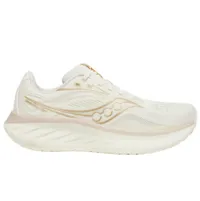Endurance training could be one of the most effective ways to support a stronger immune system — here's what the science says
Endurance exercise could be key to building a healthier immune system

Here at Tom’s Guide our expert editors are committed to bringing you the best news, reviews and guides to help you stay informed and ahead of the curve!
You are now subscribed
Your newsletter sign-up was successful
Want to add more newsletters?
Join the club
Get full access to premium articles, exclusive features and a growing list of member rewards.
If you're a runner or a cyclist regularly tackling big distances, you might sometimes question why you spend half your weekends logging miles and putting your body through some hefty exertion. Long runs, back-to-back rides and early alarm clocks don't always feel easy, and unless you are actively training for a race, it can be difficult to remember why you signed up for this kind of hobby in the first place. But the benefits of endurance training run deeper than a new personal best or stronger legs.
Endurance exercise has long been celebrated for its cardiovascular perks, its mood-boosting effects, and that well-known runner’s high. New research now suggests the impact goes far beyond fitness. It can train your immune system too, building resilience in ways many of us don't often think about when we lace up in pair of the best running shoes.
For those already in the habit, it's another good reminder of why those miles matter, and for those who aren't, it might just be the nudge to start.
I’m a big fan of the Saucony Ride 18, the latest in a running shoe series that has carried me through countless marathon training miles. Right now, it’s available with a generous 37% off. Whether you’re lacing up for your first 5K or logging serious mileage, this shoe is a reliable all-rounder.
What exactly did the research find
Researchers compared NK cells from individuals who had been regularly running or cycling for more than 20 years with cells from sedentary peers of the same age
A recent study conducted by researchers from São Paulo State University (UNESP) and Justus Liebig University Giessen looked at how long-term endurance exercise affects the immune system in older adults. The study focused on natural killer (NK) cells, a type of white blood cell essential for immune defense. Participants were older adults with an average age of around 64 years. The researchers compared NK cells from individuals who had been regularly running or cycling for more than 20 years with cells from sedentary peers of the same age.
The results showed that NK cells from endurance-trained adults functioned differently from those in untrained adults.
The trained cells were better able to handle inflammatory challenges and used energy more efficiently. Even when exposed to drugs that typically stress immune cells, the NK cells from trained participants maintained their activity, whereas those from untrained adults showed signs of cellular exhaustion.
Luciele Minuzzi, one of the researchers involved in the study, explained: "In these individuals, NK cells functioned better in the face of an inflammatory challenge, in addition to using energy more efficiently. Therefore, it's as if exercise also trains the immune system."
Get instant access to breaking news, the hottest reviews, great deals and helpful tips.
What defines endurance training?

When we talk about endurance training, we’re usually referring to steady, sustained efforts that build cardiovascular fitness over time. Running, cycling, swimming and rowing are classic examples, but even long, brisk walks count.
The goal isn’t to go all out but to keep moving at a pace you can sustain for an extended period, often 45 minutes or more. It’s the kind of training that builds stamina, strengthens the heart and lungs, and, as the research suggests, can have a positive effect on your immune system too.
If you’re new to endurance exercise, it doesn’t need to start with a marathon or a 50-mile bike ride. A walk that gradually gets longer, or Jeffing (a jog-walk approach), or a short spin on the bike are all great ways to build a base. The key is consistency. Start small, find a pace that feels challenging but manageable, and build up slowly over time.
Follow Tom's Guide on Google News, or add us as a preferred source, to get our up-to-date news, analysis, and reviews in your feeds. Make sure to click the Follow button!
More from Tom's Guide
- This 20-minute full-body dumbbell workout is designed to build lean muscle and boost power
- A certified coach reveals the 8 exercises football players swear by for total-body strength
- I trained for my first trail half marathon with Runna — and it paid off

Jessica has been a fitness writer at Tom’s Guide since 2023, bringing three years of experience writing about health, fitness, and the great outdoors. Her passion for exercise began during her childhood, where she spent weekends hiking and competing in local athletics club events. After earning a master’s degree in journalism from Cardiff University, Jessica found the perfect way to combine her love of storytelling and fitness into a career.
Jessica is passionate about testing fitness gear and tech, using her reviews to help readers make informed buying decisions. She ran her first marathon in April 2024, finishing it in 3 hours and 48 minutes. Through her training, she’s developed a deep understanding of what it takes to grow as a runner, from effective workouts and recovery techniques to selecting the right gear for every challenge.
When she’s not at her desk, Jessica enjoys spending time in the kitchen crafting new recipes, braving cold water swims and hiking.
You must confirm your public display name before commenting
Please logout and then login again, you will then be prompted to enter your display name.
 Club Benefits
Club Benefits











